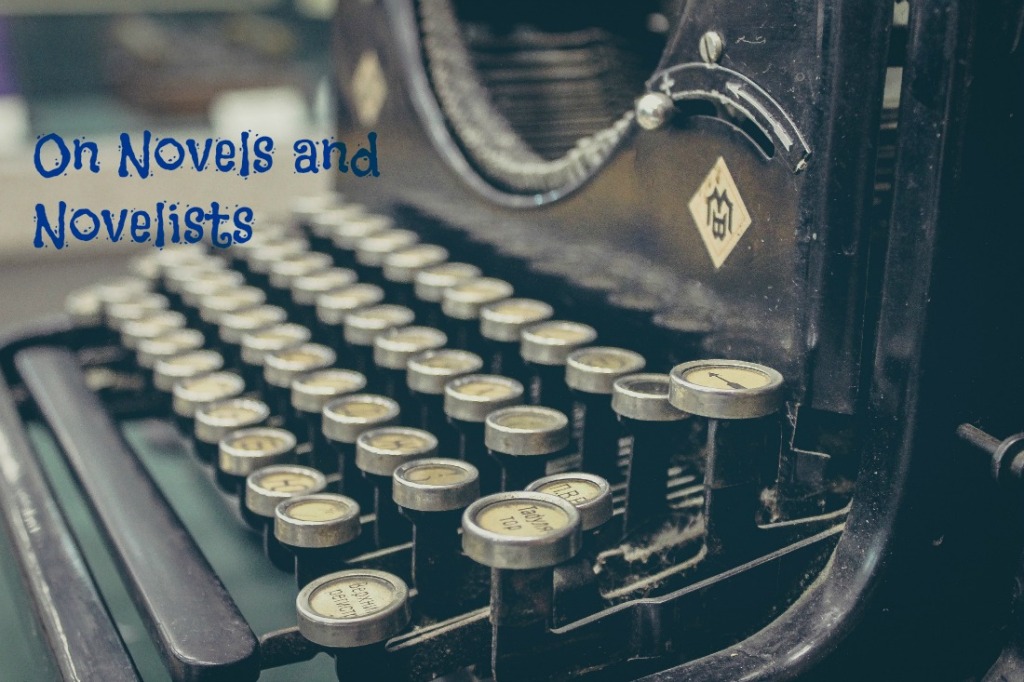Here’s Why Famous Authors Chose Their Fake Names
For as long as there have been books, there have been authors disguising themselves behind pseudonyms. Some do it for political reasons, others for personal concerns, and some simply for the joy of mischief. In any case, pseudonyms are a tpower tool for writers, allowing their pens to say what perhaps their mouths couldn’t.
Sara Boboltz has put together information on authors who have used the following pseudonyms:
- Robinson Crusoe
- Voltaire
- Stendhal
- George Sand
- Currer, Ellis, and Acton Bell
- Dr. Seuss
- Lewis Carroll
- George Eliot
- Mark Twain
- Joseph Conrad
- O. Henry
- Pablo Neruda
- Isak Dinesen
- George Orwell
- Claire Morgan
- Ayn Rand
- Stan Lee
- Victoria Lucas
- Toni Morrison
- Lemony Snicket
Remembering Kent Haruf
Gary Fisketjon was Kent Haruf’s long-time editor at Knopf. Here he talks about their friendship and Haruf’s last novel, Our Souls at Night, the writing of which seemed to carry the writer through the final months of his life:
So this was why his mood had lightened over these months when he sounded like himself again. It is, after all, what writers do — they write. In his last interview, Kent describes the importance of concentration, and it seems to me he was a master of it, that this is what powered his ability to reveal, as he hoped to, “the fundamental, irreducible structure of life, and of our lives with one another.”
Haruf finished the copyediting of this last novel just days before his death in November 2014. Our Souls at Night is available now.
The Best William Gaddis Novels
Joseph Tabbi’s outstanding new biography of postmodern master William Gaddis, Nobody Grew But the Business, is a fascinating look at a well-known reclusive writer. It also reveals that much of Gaddis’s writing was autobiographical, and that Gaddis mined his 20 years in corporate America, as well as his own family history, for characters, themes, and stories. Tabbi ranks Gaddis’s novels.
There’s something sad about encountering an author only after his or her death. But there’s something exhilarating as well, because now we have a whole new body of work to pick up and get to know.
Here’s some advice on tackling the work of William Gaddis, whom biographer Joseph Tabbi describes as “a writer who can change how a reader looks at the world.”
“No writer is better than Gaddis at portraying the corporatization of America,” Tabbi says. Read why he recommendations tackling Gaddis’s output in this order:
- J R (1975)
- The Recognitions (1955)
- Carpenter’s Gothic (1985)
- A Frolic of His Own (1994)
- Agapē Agape (2002)
Why write a collaborative novel? Well … why write alone?
Buddies Christopher Robinson and Gavin Kovite have recently published their first collaborative novel, War of the Encyclopaedists. Robinson is a MacDowell Colony fellow and a Yale Younger Poets Prize finalist. Kovite, an infantry platoon leader in Baghdad in 2004–2005, attended NYU law school and is now an Army lawyer and fiction writer.
In this piece they address the question of why they co-wrote a novel, a question they say seems to be based on the assumption that writing one’s own novel would be a greater achievement. Read the story of how their collaboration lead to this conclusion:
And yet here we are, awaiting the publication of our debut novel. It’s almost too difficult for us to believe. Without Chris’ drive, organization and friendly harassment, Gavin would never have made the time to contribute. And without Gavin’s contributions, Chris would be staring into the void. It was writing a novel together—a novel with its fair share of buoyant humor, but weighted with the melancholy and trepidation of growing up—that deepened our friendship and changed the course of our lives. In learning how to write vulnerable characters, we strengthened our empathy muscles, and learned how to be vulnerable to each other.
The new reign of writing from Spain is far above the plain
Eileen Battersby invites you to say Si Si to great writing from Spain, the mother country of a magnificent global literature, and salutes Hispabooks, a Madrid publisher commissioning English translations of contemporary classics
Archaeologists and anthropologists recently announced the discovery of the grave of Spanird Miguel de Cervantes (1547–1616), author of literature’s first novel, Don Quixote: The Ingenious Gentleman Don Quixote of La Mancha. Using this announcement as a springboard, Eileen Battersby writes in The Irish Times about Cervantes, the father of Spanish literature, and the literary tradition he inspired.
Her list “conveys some idea of their artistry and stylistic panache as well as their flair for very human stories with Everyman narrators” and includes authors whose work has now been translated into English:
- The Boy Who Stole Attila’s Horse by Ivan Repila, translated from the Spanish by Sophie Hughes (Pushkin Press, London)
- All is Silence by Manuel Rivas, translated from the Galician by Jonathan Dunne (Vintage, London)
- Life Embitters by Josep Pla, translated from the Catalan by Peter Bush (Archipelago Books, New York)
- Uncertain Glory by Joan Sales, translated from the Catalan by Peter Bush (MacLehose Press, London)
- Things Look Different in the Light by Medardo Fraile, translated from the Spanish by Margaret Jull Costa (Pushkin Press, London)
- The Stein Report by Jose Carlos Llop, translated from the Spanish by Howard Curtis (Hispabooks, Madrid)
- The Birthday Buyer by Adolfo Garcia Ortega, translated from the Spanish by Peter Bush (Hispabooks, Madrid)
- Uppsala Woods by Alvaro Colomer, translated from the Spanish by Jonathan Dunne (Hispabooks, Madrid)
- The Faint-Hearted Bolshevik by Lorenzo Silva, translated from the Spanish by Nick Caistor and Isabelle Kaufeler (Hispabooks, Madrid)
Battersby’s list and descriptions offer readers a good opportunity to stretch their boundaries and try reading something from another country and culture.

